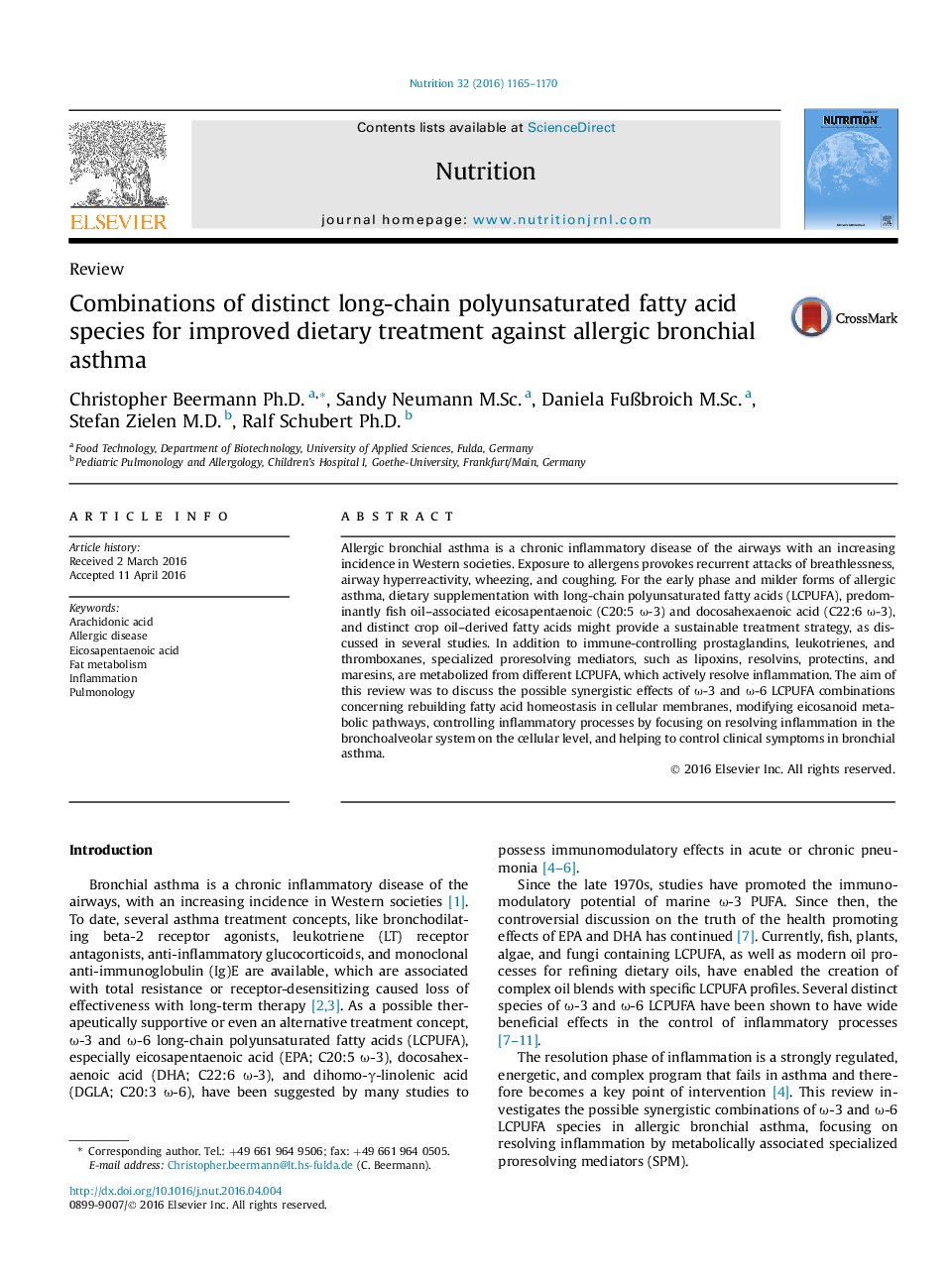| Article ID | Journal | Published Year | Pages | File Type |
|---|---|---|---|---|
| 3276064 | Nutrition | 2016 | 6 Pages |
•The present study reviewed dietary treatment with fatty acids against asthma.•Synergistic anti-inflammatory effects of fatty acids in asthma were discussed.•Combinations of fatty acid were used to block arachidonic acid-associated inflammation.•Arachidonic acid possesses pro- and anti-inflammatory properties in asthma.
Allergic bronchial asthma is a chronic inflammatory disease of the airways with an increasing incidence in Western societies. Exposure to allergens provokes recurrent attacks of breathlessness, airway hyperreactivity, wheezing, and coughing. For the early phase and milder forms of allergic asthma, dietary supplementation with long-chain polyunsaturated fatty acids (LCPUFA), predominantly fish oil–associated eicosapentaenoic (C20:5 ω-3) and docosahexaenoic acid (C22:6 ω-3), and distinct crop oil–derived fatty acids might provide a sustainable treatment strategy, as discussed in several studies. In addition to immune-controlling prostaglandins, leukotrienes, and thromboxanes, specialized proresolving mediators, such as lipoxins, resolvins, protectins, and maresins, are metabolized from different LCPUFA, which actively resolve inflammation. The aim of this review was to discuss the possible synergistic effects of ω-3 and ω-6 LCPUFA combinations concerning rebuilding fatty acid homeostasis in cellular membranes, modifying eicosanoid metabolic pathways, controlling inflammatory processes by focusing on resolving inflammation in the bronchoalveolar system on the cellular level, and helping to control clinical symptoms in bronchial asthma.
